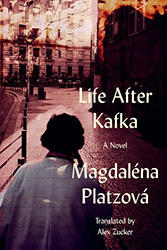Like the best post-service oneg, It’s A Whole Spiel: Love, Latkes, and Other Jewish Stories offers a little taste of everything in its fourteen stories by Jewish authors about modern Jewish teens. The promised love and latkes are to be had in abundance, as are humor and heartbreak and relatable insecurities — both the universal teenage fears of fitting in and finding space to be oneself, and the specific Jewish incarnations of those fears. Characters worry that their interests are too nerdy, that they don’t know enough about Shabbat, that they know too much about Shabbat and not enough about college, that the cute boy or girl isn’t going to notice them, that the cute boy or girl onlynoticed them because they’re Jewish… And yet, every time, things work out all right.
It’s a Whole Spiel opens up the landscape of Jewish fiction for young adults by focusing on contemporary experiences, rather than the historical settings which prevail in Jewish stories for the teen market. What makes Jewish teens different from all other teens? In this collection, it is only the fact that their lives are spiced with Jewishness — whether that Jewishenss takes the form of religious observance, identification with the culture, or anxiety over a lack of observance. In a humorous, yet touching line from Lance Rubin’s “Jewbacca”, the protagonist reflects that “his neuroses about not being Jewish was, in some ways, the very thing that confirmed he was Jewish.”
The anthology shines in showing a multiplicity of levels of observance and relationships to Judaism and Jewish peoplehood. Characters at different levels of observance interact and relate to one another, without the narration holding one form of Jewishness as superior to the others. Interactions between Jews of differing traditions have hitherto been rare in young adult literature, and it is heartening to see them take center stage in a number of stories. It is likewise encouraging to see a number of stories highlighting queer teens. A standout is Hannah Moskowitz’s tender “Neilah,” in which the female protagonist accompanies her first girlfriend to Yom Kippur services. Mira, the girlfriend, inadvertently hands her a piece of Jewish wisdom which helps her feel more at home in her own skin; Jewishness, queerness, and self-acceptance are wrapped together like the strings at the corners of a tallit.
A single anthology cannot contain the entire spectrum of Jewish experience, it must be said. With the exception of Adi Alsaid’s “Ajshara,” a story of Mexican Jewish teens’ explorations of the world and themselves on a year abroad, the collection is overwhelmingly US American and Ashkenazi in its perspective. With luck, the presence of It’s a Whole Spiel on library and bookstore shelves, showing that contemporary Jewish stories have a place in the Young Adult market, will encourage new authors to write and publish their own perspectives. The work is not yet complete, but the authors and editors of this collection have taken an important step forward.
Sacha Lamb (@sachalamb.author on Instagram) explores gender, sexuality, and disability through historical fiction centering Jewish mythology and folklore. Their debut, When the Angels Left the Old Country, is a Printz Honor book and Stonewall and Sydney Taylor award winner. Their second novel, The Forbidden Book, is a Sydney Taylor Honor book and a Boston Globe Best of the Year pick for 2024. A 2018 Lambda Literary fellow, Sacha has a degree in Library and Information Science from Simmons University. They live in New England with a miniature dachshund mix named Anzu Bean.






